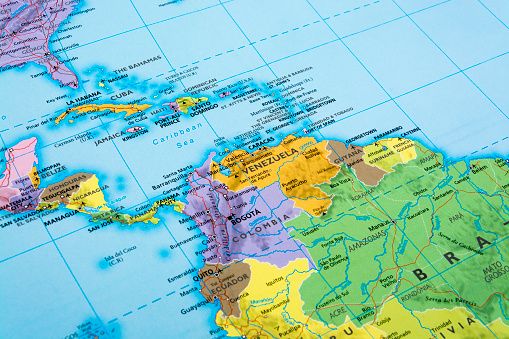 The report, “Winning in the Americas,” surveyed 400 C-suite level executives at mid-market companies and found that of internationally-active companies, 58% are two-way traders. Of those companies that said they would like to expand their international activities, 60% were specifically targeting the Americas.
The report, “Winning in the Americas,” surveyed 400 C-suite level executives at mid-market companies and found that of internationally-active companies, 58% are two-way traders. Of those companies that said they would like to expand their international activities, 60% were specifically targeting the Americas.
While many mid-market companies are already exploring Mexico, few are venturing south beyond that into Central America, South America and the Caribbean. Only 20% of mid-market companies said they export to South America and fewer than one in 10 said they export to Central America. Considering Latin America is a significant trading partner with the U.S. and makes up to 20% of all exports, mid-market companies may be missing out by not aggressively pursuing the region.
Mid-market leaders said Latin American countries, particularly Costa Rica, El Salvador and Belize, are easy to enter with Brazil being more difficult. Of mid-market companies that export, Brazil, Argentina and Colombia were the biggest partners in the region.
Yet the region can also present its challenges. Lesley White, head of Global Commercial Banking International for Bank of America Merrill Lynch, told financial executives that while mid-market companies are often “nimble enough” and can more flexibly navigate the market, there are specific issues in Latin America. These range from regulatory issues and economic uncertainty to lack of local market knowledge.
Increased economic activity is also sparking business growth by local firms in the Americas. Mergers & Acquisitions reported that M&A activity has grown significantly in the past decade. Particularly blooming industries include energy, financial services, healthcare and communications.
Companies will have to mitigate infrastructure and supply chain vulnerabilities, leaving the business leader on the ground to deal with the local workforce, manage capital locally, and engage in capital planning. White said no matter what the country, U.S. companies must think long-term when moving into new international markets. Especially in Latin America, personal business relationships can be essential and parties want to know that companies are committed to a region and its communities.
White said it’s essential that expanding companies be informed on the myriad of rules and sensitivities that can impact decision and that one of the best way companies can overcome these challenges is by building strong relationships with locals.
“When managing operations in Latin America, the sheer number of decisions that must be made can lead to sub-optimal arrangements…By focusing on relationships, middle market companies will be able to drive the expertise needed to navigate the [landscapes] in Latin America successfully,” said White.

Chief Executive Group exists to improve the performance of U.S. CEOs, senior executives and public-company directors, helping you grow your companies, build your communities and strengthen society. Learn more at chiefexecutivegroup.com.
0

1:00 - 5:00 pm
Over 70% of Executives Surveyed Agree: Many Strategic Planning Efforts Lack Systematic Approach Tips for Enhancing Your Strategic Planning Process
Executives expressed frustration with their current strategic planning process. Issues include:
Steve Rutan and Denise Harrison have put together an afternoon workshop that will provide the tools you need to address these concerns. They have worked with hundreds of executives to develop a systematic approach that will enable your team to make better decisions during strategic planning. Steve and Denise will walk you through exercises for prioritizing your lists and steps that will reset and reinvigorate your process. This will be a hands-on workshop that will enable you to think about your business as you use the tools that are being presented. If you are ready for a Strategic Planning tune-up, select this workshop in your registration form. The additional fee of $695 will be added to your total.

2:00 - 5:00 pm
Female leaders face the same issues all leaders do, but they often face additional challenges too. In this peer session, we will facilitate a discussion of best practices and how to overcome common barriers to help women leaders be more effective within and outside their organizations.
Limited space available.

10:30 - 5:00 pm
General’s Retreat at Hermitage Golf Course
Sponsored by UBS
General’s Retreat, built in 1986 with architect Gary Roger Baird, has been voted the “Best Golf Course in Nashville” and is a “must play” when visiting the Nashville, Tennessee area. With the beautiful setting along the Cumberland River, golfers of all capabilities will thoroughly enjoy the golf, scenery and hospitality.
The golf outing fee includes transportation to and from the hotel, greens/cart fees, use of practice facilities, and boxed lunch. The bus will leave the hotel at 10:30 am for a noon shotgun start and return to the hotel after the cocktail reception following the completion of the round.